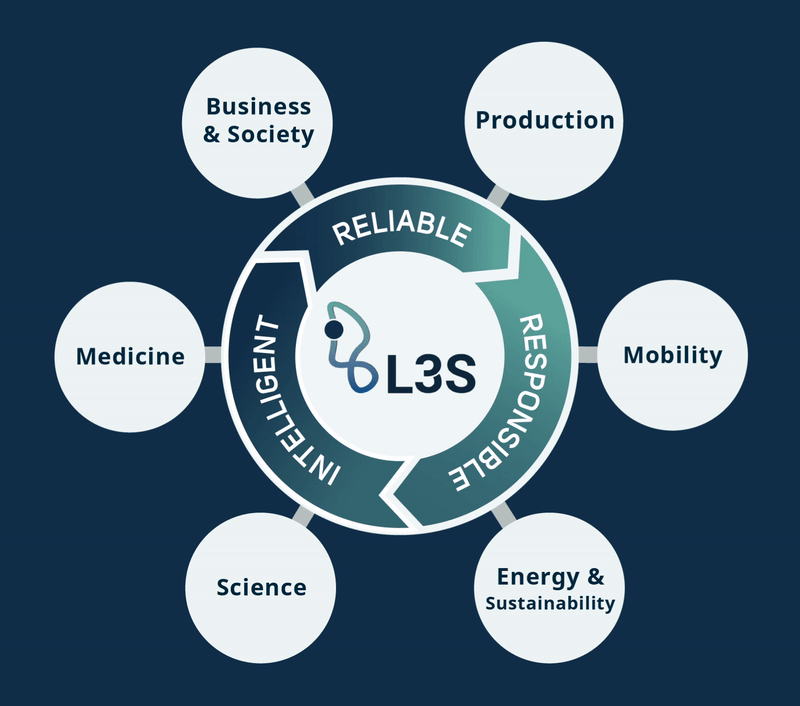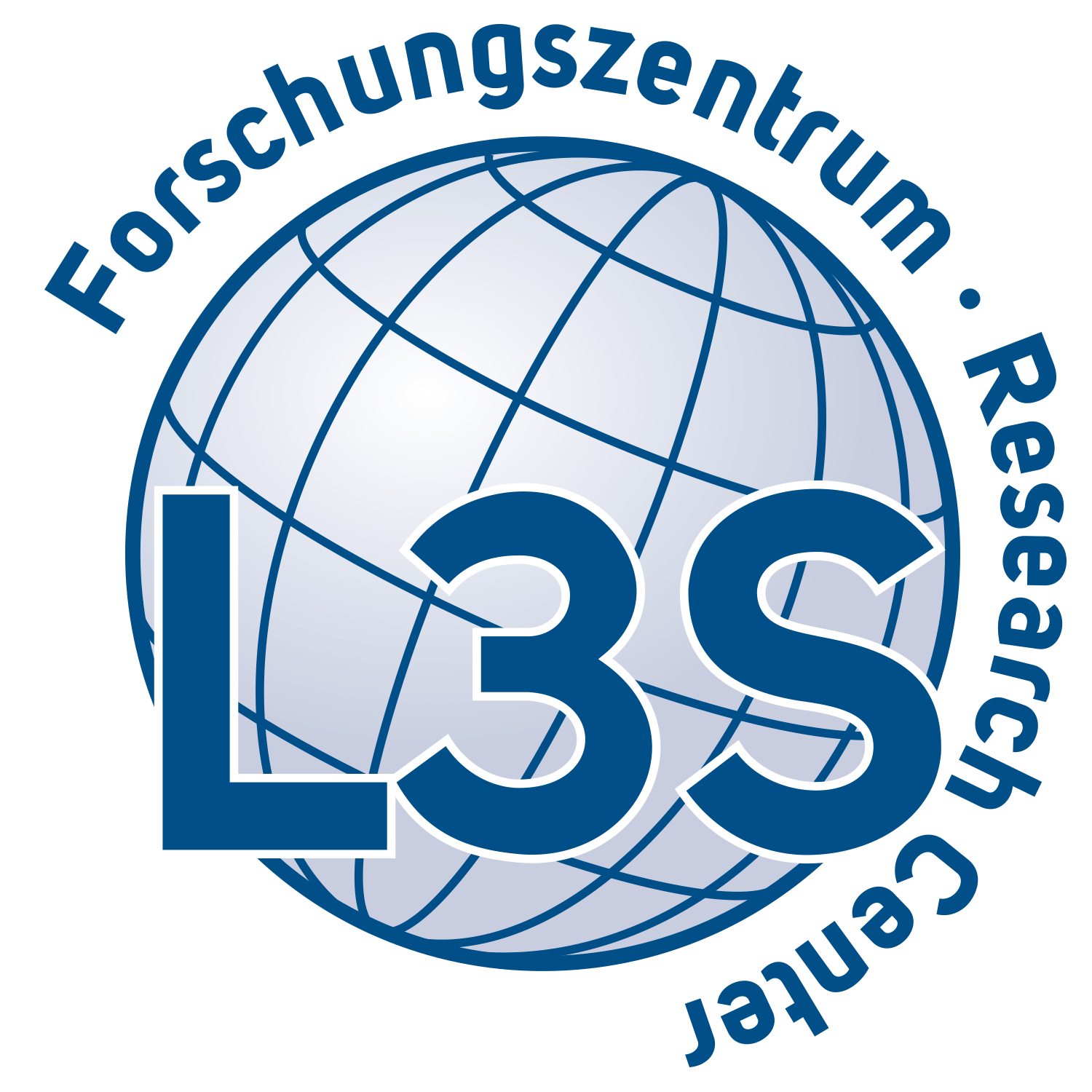Excellent Research Made in Lower Saxony
This is L3S
L3S is a German research center internationally renowned for its leading-edge research in artificial intelligence and the development of application-oriented AI methods, particularly in medicine, production, mobility, science, and education.
The L3S Research Center is a joint institution of Leibniz Universität Hannover and Technische Universität Braunschweig founded in 2001.

Portfolio
The internet, mobile communication, data science and artificial intelligence are leading to profound social change and influencing human behaviour and decisions at all levels of social coexistence, the economy, and politics. Our firm conviction is that the active and positive shaping of this change can only be researched and accompanied in an interdisciplinary and international network to derive options for action, recommendations and innovation strategies for business, politics and society.
Our research and development projects use various innovative methods and technologies from data science and AI to research and develop customised cutting-edge solutions for industry and society.
Mission
At L3S, we aim to achieve breakthroughs in trustworthy artificial intelligence and digital technologies to make our world a better place to live. Around 200 excellent researchers from computer science and other relevant disciplines, such as law, philosophy, and sociology, develop cutting-edge AI methods and technologies for the digital transformation of industry and society.
We aim to help industry, society, and policymakers address current and future challenges by deriving courses of action, recommendations, and innovation strategies. We want to unlock the potential of AI for positive societal and economic contributions while ensuring the use of intelligent technologies ethically and sustainably.
Values & Competences
We aim to explore and develop trustworthy AI systems for the benefit of humans, which requires clear values, competencies, and guiding principles for research and development. The L3S brings together the necessary core competencies in computer science, ethics, and law to develop intelligent, reliable, and responsible systems for digital transformation. In doing so, we operate on a firm foundation of values reflected in the following triad of research and development principles.

Reliable
Networked and autonomous systems take on increasingly complex tasks. Ensuring reliability, safety, and security in intelligent systems through appropriate design and deployment is crucial.

Responsible
Considering social, ethical, and legal issues when developing intelligent systems. Trustworthy systems become possible through transparent decision-making, explainable algorithms and privacy by design.
L3S History

The L3S started in 2001 as the Learning Lab Lower Saxony. A steadily growing number of employees researched forward-looking methods and technologies on the topics of knowledge, information and learning for the increasingly networked knowledge society. The L3S soon belonged to the forefront of a new research field: Web Science. The goal of L3S research was to develop innovative methods and technologies that enable intelligent and seamless access to information via the web, support and connect individuals and communities in all areas of the knowledge society, and connect the internet to the real world and its institutions.
With the availability of huge amounts of data and ever-increasing computing capacities, it was then possible to develop machine learning methods that can analyse and process large amounts of data – with enormous potential in application areas such as autonomous driving, industry or medicine, but also with new challenges in terms of security or reliability. The L3S is therefore researching intelligent, reliable and responsible systems for the digital transformation.


